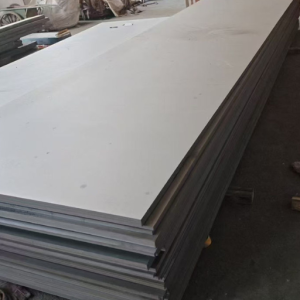Get in touch with us
Leave a message
Iron Nickel Alloy Plate is the ultimate choice for precision engineering and thermal stability applications. This remarkable iron-nickel alloy combines exceptional dimensional stability with low thermal expansion, particularly in extreme temperature fluctuations. The unique Fe-Ni alloy composition delivers reliability where other materials fail. Iron Nickel Alloy Plate maintains its integrity from aerospace components to electronic sealing under demanding conditions. Our precision-controlled Iron Nickel alloy formulations ensure consistent performance in your most critical low-expansion alloy applications.

Iron Nickel Alloy Plate is governed by standards like ASTM F15, ASTM F30, and AMS 5221, ensuring quality across grades such as Invar 36, Kovar, and Alloy 42. These standards define properties like thermal expansion, corrosion resistance, and finish. For instance, an Invar 36 Iron Nickel Alloy Plate aligns with ASTM F15 for low thermal expansion applications, while Kovar offers superior sealing properties per the same spec. Classification splits into types such as Invar 36 (low expansion), Kovar (glass-to-metal sealing), and Alloy 42 (magnetic applications), with grades further distinguished by finishes like bright polished or mill finish. Iron Nickel Alloy Plate, typically thicker than 0.1875″ (4.76mm), adheres to similar standards but is often tailored for precision engineering applications.
Iron Nickel Alloy Plate comes in a wide range of sizes to suit diverse needs. Common dimensions include:
This flexibility ensures Iron Nickel Alloy Plate fits everything from precision engineering to large industrial builds.
Iron Nickel Alloy Plate comes in various forms and finishes, each tied to specific manufacturing processes:
| Grade | Characteristics | Applications |
|---|---|---|
| Invar 36 Sheet | Extremely low thermal expansion. High dimensional stability. Good corrosion resistance. Non-magnetic. Moderate strength. | Precision instruments (e.g., optical devices, lasers). Aerospace components (e.g., satellite structures). Scientific equipment. Tooling and mold making. |
A: A nickel-iron alloy plate, such as Invar or Monel, combines nickel and iron to offer unique properties like low thermal expansion, corrosion resistance, and high strength, ideal for precision and industrial applications.
A: Iron nickel alloy plates resist rust well due to nickel’s protective oxide layer. However, in highly oxidizing environments, alloys with higher iron content may show minor corrosion without proper care.
A: Nickel-iron alloy plates, like Inconel, often surpass stainless steel in strength, especially at high temperatures, and offer better corrosion resistance, though stainless steel may be more cost-effective for general use.
A: Nickel-iron alloy plates are used in aerospace for structural components, chemical processing for reactors, and electronics for magnetic shielding, thanks to their durability and unique thermal properties.
A: Iron nickel alloy plates provide low thermal expansion (e.g., Invar), excellent corrosion resistance, and high strength, making them ideal for precision instruments, marine environments, and high-stress applications.
A: Yes, iron nickel alloy plates are very strong, with tensile strengths often exceeding 1000 MPa (e.g., Inconel), and they maintain their strength at elevated temperatures, perfect for demanding industrial uses.

Professional manufacturer of premium specialty alloys, offering stainless steel, Hastelloy, nickel-based alloys and processing services. Delivering superior metallurgical solutions for aerospace, petrochemical, marine engineering and other demanding industries.